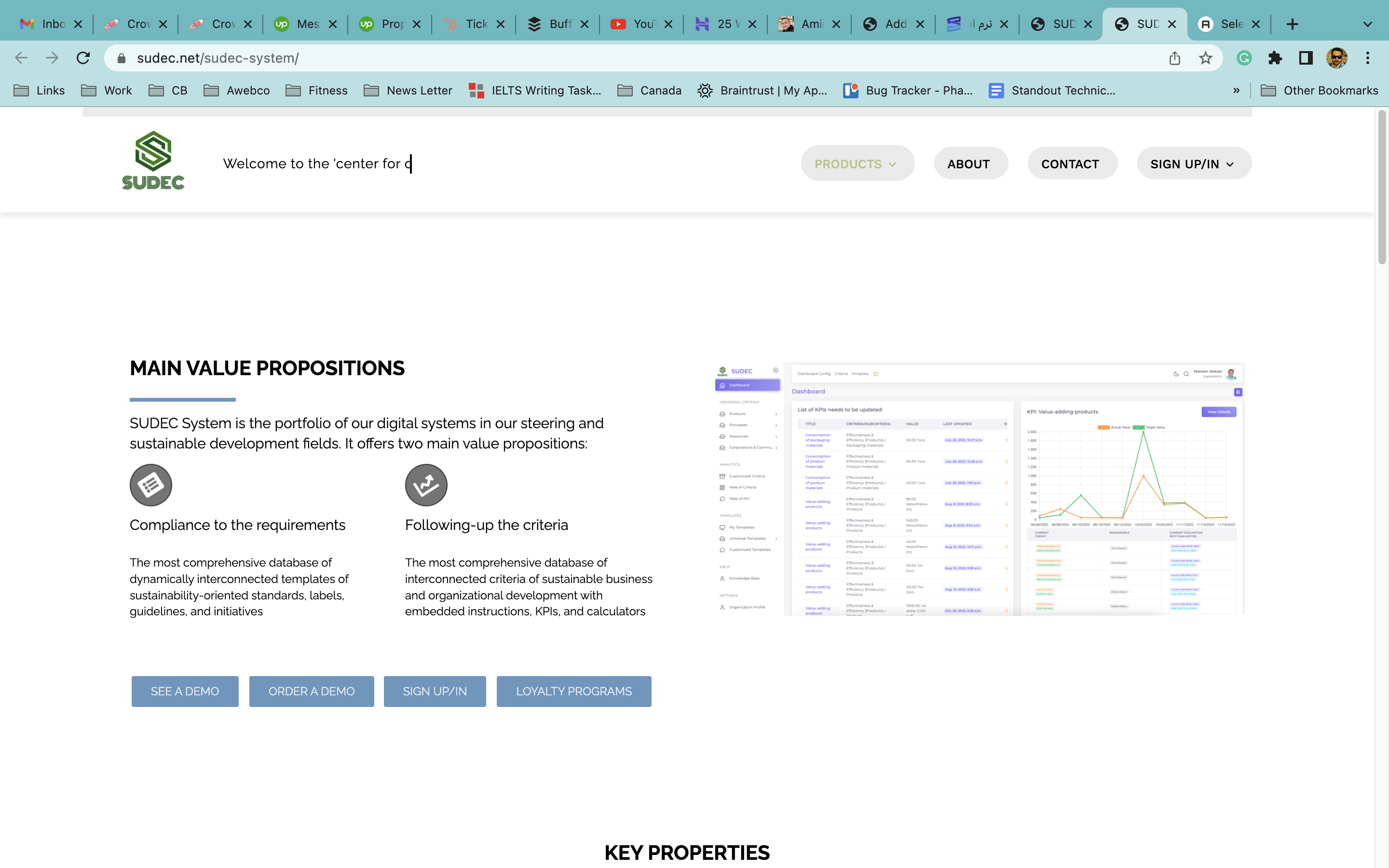
Amin Ghasemi
Full Stack Developer | Product Manager
© 2022 All rights reserved.

Sudec: a new approach to supply chain management
As a product manager and developer, I led the development of a SaaS solution for sustainable supply chain management that helped businesses reduce their environmental impact, improve supplier performance, and comply with regulations. Here's an overview of the project:
- Problem Statement: Many businesses struggle to manage their supply chain sustainability, leading to negative environmental impacts and reputational risks. There was a need for a SaaS solution that could provide visibility and transparency into supply chain processes and enable businesses to make more sustainable decisions.
- Market Analysis: We conducted extensive market research and found that existing sustainable supply chain management software was either too expensive, too complex, or lacked the necessary functionality. We identified an opportunity to create a more affordable, user-friendly, and feature-rich solution that could appeal to a wide range of businesses.
- Product Overview: Our SaaS solution included modules for tracking environmental impact, supplier performance, and compliance with regulations. We also developed user-friendly dashboards that provided real-time insights and analytics, as well as predictive modeling capabilities that could help businesses anticipate and address sustainability risks. Our solution was also designed to integrate seamlessly with existing software systems, making it easy to adopt and use.
- Development Process: We used an agile development methodology, working closely with customers and stakeholders to gather feedback and incorporate it into the product. We used modern software technologies, such as cloud computing and machine learning, to create a scalable and efficient solution. We also faced challenges in ensuring the accuracy and reliability of sustainability data, but we overcame these by partnering with trusted data providers and developing rigorous data validation processes.
- Results and Impact: Our SaaS solution was well-received by customers, with adoption rates exceeding our expectations. We saw measurable improvements in supply chain sustainability metrics, such as reduced carbon emissions and waste reduction. Our customers also reported improved supplier relationships and better compliance with regulations. Overall, our solution helped businesses become more sustainable and ethical, while also improving their bottom line.
By creating this SaaS solution for sustainable supply chain management, I demonstrated my ability to manage complex development projects, conduct market research, and deliver value to customers.